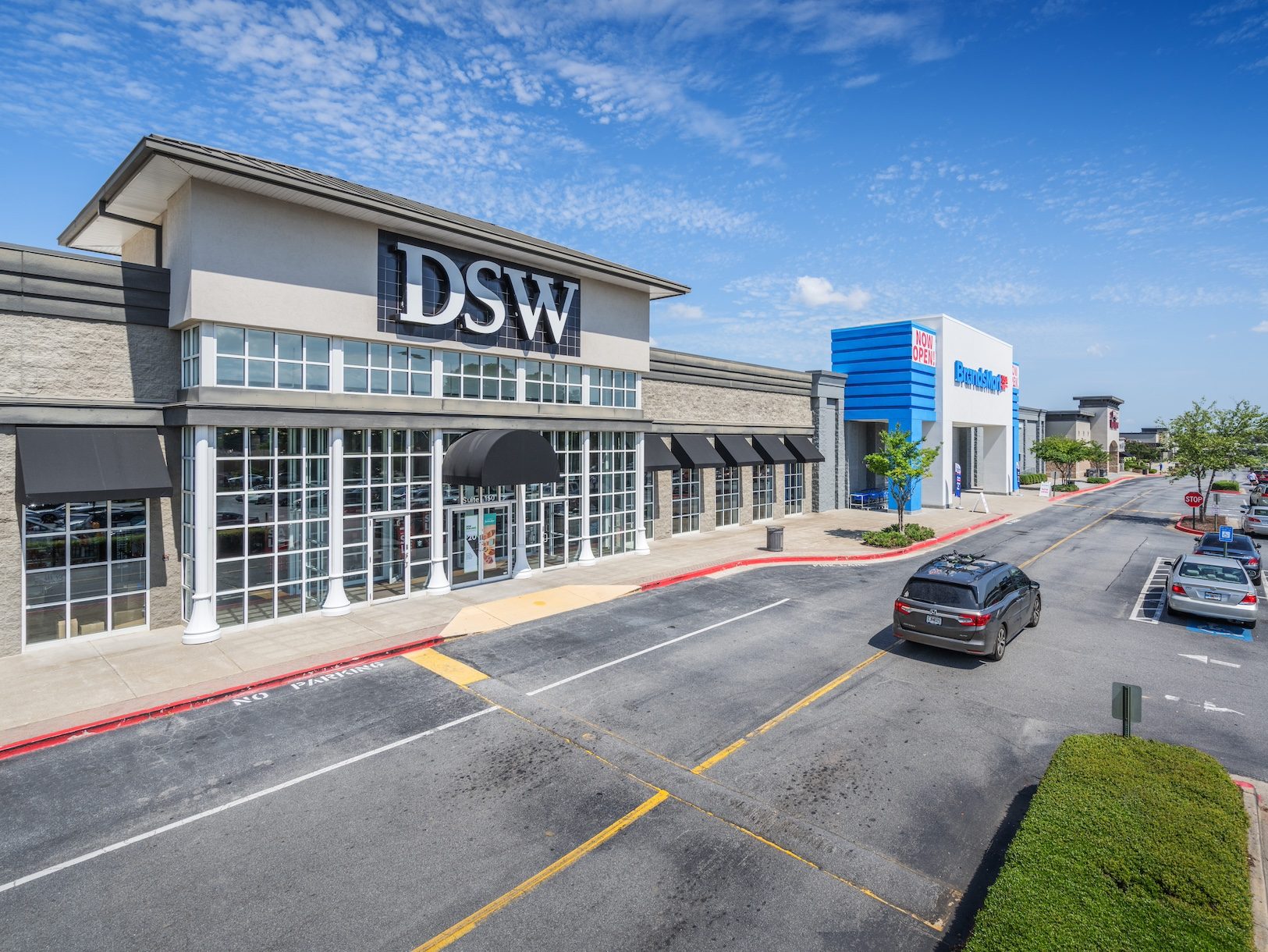For KeyBank, It’s Location, Location and Credit
Andrew Lucca, head of the bank’s Income Property Group, on why market and submarket value will weigh more when accessing debt going forward.
With the U.S. Federal Reserve expected to continue raising interest rates in 2023, financial conditions are likely to remain tight. To find out what CRE lenders and borrowers should expect over the coming quarters, Commercial Property Executive reached out to Andrew Lucca, head of KeyBank’s Income Property Group.
How has the approach to a CRE loan request changed in the past 12 months?
Lucca: We haven’t changed our overall methodology. We always start with who the client is. We look at “people, credit, real estate.” We’re no different from any of the other large institutions in terms of how we approach that. We look at people first—clients that kind of fit our platform. Then, we look at credit, and, then, we look at the quality of the real estate.
What has changed for us is we want to make sure we’re making good long-term decisions, not just decisions for the short term. We want to make sure we’re looking at the individual markets. I think we are looking at markets and submarkets a lot closer in terms of potential risks. For example, oversupply in the multifamily sector.
We really haven’t been making many office loans at Key in the past couple of years. A couple of years ago we said we need to be very cautious about that. I believe we were ahead of the game on what is related to office. I think we are a lot more careful, and we need to make sure that we are comfortable with the asset over the next couple of years.
I think the other major component right now is the rising rate environment. When you’re underwriting debt service coverage, you need to make sure that you have sufficient cushion in the event interest rates rise. I think that is something that for sure has become more in focus over the past year.
READ ALSO: 10 Intriguing CRE Deals and the Brokers Who Made Them Happen
Tell us about the property types and sectors that you are financing.
Lucca: We’ve never been huge construction lenders. That’s been the case since the Great Recession. We will still do it for really good clients. I think for the deals we have done, we’ve seen quite a bit of increase in costs from the beginning of the year, when we started talking about the deal, until the deal was ready to close, right now. We’ve seen cost increases from 10 to 20 percent.
Construction is an area, for all product types, that we’ve been very cautious about. We’ve been that way since 2010.
Multifamily is still the primary product type that we finance. We’ll typically do deals coming out of construction, bring the bridge loans in place and that loan will ultimately roll into a permanent loan. Typically, we work with Fannie or Freddie or other long-term permanent lenders. We’ll look at value-add transactions. Rents are moderating in some markets and there’s a pretty large shortage of housing nationwide. Multifamily—repositioning and lease-up deals—would probably be No. 1 one on our list.
We’ve also been doing quite a bit of industrial over the past 12 months. We’re starting to slow down on that a little bit. We think the fundamentals of industrial are still really good. There’s a great need for more industrial space to deal with some of these supply chain issues that have kind of rocked the country. We’re watching that space carefully and just want to make sure that space doesn’t get overbuilt. I would say industrial is probably second.
When it comes to retail, I think there’s great retail locations. There are great retail clients out there. We’re absolutely doing a little bit of retail, where the deal and the sponsor make sense.
As I’ve mentioned earlier, we’re not really looking at office unless you’ve got a very long-term lease to a credit-rated tenant.
Let’s talk about the decrease in LTV ratios. What are the property types that are seeing the lowest LTV ratios at the moment?
Lucca: I would say multifamily and industrial, but what’s changed is that was based on the fact that cap rates were so low. You weren’t LTV constrained. In a lot of cases, you were debt service coverage constrained. It’s just a correlation between interest rates and cap rates. Cap rates inevitably have to go up when interest rates go up, so that, of course, puts a little bit of pressure on LTV.
NOI growth, which could offset that, is still there. But, in general, I would say multifamily and industrial are probably lower on the leverage scale. But all those deals, when you underwrite them, are typically tight on debt service coverage. Even at lower LTVs. We don’t worry as much about LTV. I mean we do care about it, obviously, but really the focus remains, as it has for the past couple of years, on underwriting cash flow, debt service coverage.
How do you expect the lending process to change in the coming year?
Lucca: Our overall process at Key is not going to change. What is going to change is we’re going to adapt to market conditions. As market conditions, such as interest rates, make themselves evident, we’re going to adjust. Just like any business, when we’re deploying our capital, we want to make sure we’re getting a good return on that capital. We’re looking at credit spreads. We want to make sure, again, we’re getting paid commensurate to the risk that’s being taken.
For multifamily, in various markets, we’re going to be looking at supply. And then we’re just going to look at the rate of rent growth. We’re going to make sure that our borrowers’ business plans make sense to us as we move forward. For other property sectors, such as industrial, it’s really going to be location specific. And, of course, who the sponsors are.
Again, we don’t bank a lot on pure merchant developers. Our clients are all long-term owners of real estate with long-term debt. Typically, there’s long-term debt in place. From a sponsors’ perspective, we’re not overly concerned that if the music stops our sponsors wouldn’t be able to support their transactions.
I think it’s going to be very market- and submarket-driven in terms of the fundamentals related to the property type we’re financing.
How are the larger borrowers impacted by tightening lending conditions, higher interest rates?
Lucca: I think everybody is going through this adjustment period where I don’t think any of us have seen interest rates rise as quickly as they have. I’ve been talking to people who have been in the business a lot longer than I have. I don’t think anybody has seen short-term interest rates rise as quickly as they have this year.
I think it’s just our borrowers readjusting. What all of our borrowers are doing is just readjusting to the new environment. Usually, our bigger borrowers are all very sophisticated and savvy. I think they’re making sure their business plans make sense. Typically, our borrowers don’t overleverage their properties. Even with the rising interest rates, they have plenty of debt service coverage on the transactions.
On the development side, however, inflation absolutely affects the returns. The other part is just government regulation, particularly in the housing sector, is definitely a factor as well.
I think our clients are absorbing that and trying to make sure, with their investors and equity partners, that they’re developing business plans that they’re able to execute on. I think everybody right now—banks, borrowers—are all taking stock and evaluating what happens if rates go up another 150 basis points? How does that affect my business plan? I know our borrowers are evaluating that, just like we are. I expect that to continue as things are everchanging in the space.
As the pool of lenders shrinks, there is talk buyers closing real estate deals all cash. Are you seeing this?
Lucca: I guess there are some folks out there doing that. If you really think about it, the biggest issue right now is there are banks that pulled back. We are not one of them. We’re still on the market. We’re still doing business.
The biggest issue is this disconnect between what a seller thinks the property is worth and what the buyer thinks the property is worth. That is a much bigger phenomenon that we’ve seen, where the seller ultimately capitulates and says “Yes, I’ll sell it for x, given the fact that treasuries have gone up.”
You might see some of the REITS and the larger institutional sponsors closing all cash deals—they’ve been known to do that from time to time. But I really haven’t seen an increase at all in borrowers closing all cash.
They make our lives easier. Typically, on acquisition yields, you have to have the financing ready to rock and roll when you close. It would be great if that were the case because we could take a little bit more time. But we have not seen that yet.
What do borrowers need to know about CRE debt as we wrap up the year?
Lucca: I think borrowers should assume rates are going to continue to go up as long as inflation is running at an elevated pace. I am not an interest rate expert, but I think the Fed has indicated they’re going to do whatever they need to do to quash inflation. I think in the short term, borrowers should assume rates are going to continue to go up. Borrowers should, whenever possible, look to fix the rates.
The yield curve is inverted but I’d be fixing loans, run recourse debt on those loans that can go with a long-term permanent loan right now and not have to worry about the potential effect of rising interest rates. But I do think interest rates are going to go up and I think borrowers need to reconcile that.
It’s going to be different than it’s been in the past 10 years where rates have been at historically low levels. I think they need to hedge their bets and lock in. Rates are still really good, historically speaking. They’re still low—lower than they were in 2007-2008. They just have to bite the bullet and lock it down if they can. That would be my advice.
READ ALSO: The Watchwords for 2023 Are Uncertainty and Stress
What should we expect from capital markets in the year ahead?
Lucca: Multifamily is still the favorite product type. The agencies are still providing significant liquidity to the space, so I don’t expect any changes there. There’s going to continue to be significant amounts of liquidity. The debt fund market has definitely slowed, given the rising rates and given a lot of the debt funds’ reliance on funding from their lines of credit, which has become more difficult.
CMBS is still out there. We are a CMBS lender. Deals are still getting done. With CMBS, you’re pretty much subject to the fluctuations of the capital markets. I think it comes down again to product type. Some product types are going to be favored—multifamily and industrial. For retail, there are some long-term lenders out there. Office and hospitality are still tougher. It’s not impossible to get financing for those types in the permanent capital markets, but it’s definitely tougher to do those deals.










You must be logged in to post a comment.